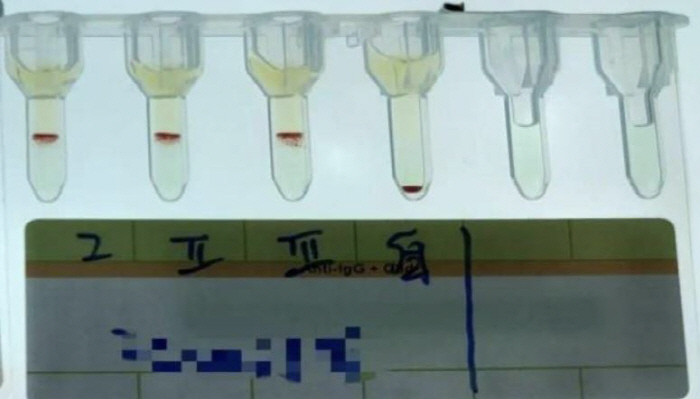Small P type blood type found rarer than dinosaur blood...less than one in a million people
|
According to Chinese media such as China Dotcom and Sina Dotcom, the Wenshan Zhuang and Miao Autonomous Prefectures' Central Blood Observatory, a minority ethnic group in Yunnan Province, said it had discovered the first blood type 'small P 型' that is extremely rare worldwide during a recent regular blood test for blood donors.
This blood type is the first of more than 570,000 blood donation cases in 22 years since the blood center was established.
According to the blood center, irregular antibody responses were detected in the serum of type O blood donors, and antibody identification tests confirmed the presence of specific antibodies.
Accordingly, through joint analysis with the Guangzhou Blood Center Clinical Blood Institute, serological and genetic testing, the donor was finally found to have a 'bovine P-type blood type'.
The small P-type blood type is a very rare subtype of the P-type blood group, and since it was first discovered by Austrian biologist Landsteiner in 1927, there have been very few reported cases worldwide.
According to statistics, the frequency of small P-type blood types is less than 1 in 1 million, much rarer than Rh-negative blood types (0.3%), commonly known as rare blood types, or Bombay blood (1 in 100,000).
According to the medical community, transfusions of general blood to patients with small-P-type blood can have serious life-threatening consequences due to specific antibodies.
Therefore, small P-type blood type holders must receive blood through the same small P-type or autologous blood, or mutual blood donation between families, and medical institutions are required to strengthen the rare blood type registration and management system.
According to medical reports, women with small P-type blood types may have an increased risk of miscarriage or stillbirth due to the immune system attacking fetal red blood cells during pregnancy. Therefore, prenatal care and immunological observation are essential for women with the blood type.
With the help of related organizations, blood information will be registered in rare blood type banks, and it is expected that it can be used to treat similar patients in the future.
This article was translated by Naver AI translator.




